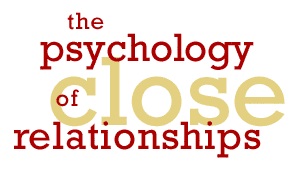 "He just drives me crazy, I could just scream!" Norah rants to her mother.
"He just drives me crazy, I could just scream!" Norah rants to her mother.
"Give it time, honey," her mother replies, "Ride it out. You've only been married two years. That's nothing, you know. Heck, your
father and I..."
"But I can't 'ride it out,'" Norah interrupts. "Sean is driving me crazy. I'm tired and angry all the time. He doesn't act like we're a
couple, he's always off doing his own thing. I do all the work, and I resent it. He stays out with his buddies till all hours, comes home
late at night, doesn't even remember when we have plans for dinner." She shakes her head. "If I complain, he says I should 'lighten up.'
It's like I can't count on him at all."
Norah's mother can't resist chiding her a little. "You used to brag that he was a free spirit, that he was so exciting," her mother
reminds her. "You loved that he was so 'spontaneous.'"
"Well, he's not exciting now, he's juvenile and irresponsible. That leaves me to be the grown-up, the bad guy. I married him to have
a partner, not a puppy!"
"Funny," her mother muses, pouring another cup of coffee, "You liked Sean being unpredictable, but now you hate that he's
unreliable. Funny how sometimes the thing you used to love about someone ends up being the thing you hate the most."
Are the seeds of couples' conflict sown in their early attraction? Early on, are we somehow attracted to
the very qualities we will later find difficult or intolerable?
 The Never-Ending Argument: A Play in One Scene
The Never-Ending Argument: A Play in One Scene
Reaching for his jacket, a man notices a stamped envelope on the table and picks it up, frowning.
| Jay: |
"What's this on the table -- the rent payment? You said you'd mail this days ago. Won't we be late now?" |
| Kayla: |
"Yeah, well, I just found that in my handbag. I just put it there so I wouldn't forget it again. You're overreacting." |
| Jay: |
"Well, I'm upset. You forgot to pay the rent, now we'll have to pay a penalty.
I'm trying to keep us on a budget, and you're not helping." |
| Kayla: |
"Well, if it's your budget, why don't you mail the damn bills? Quit acting like my father." |
| Jay: |
"Then quit acting like a child! You never do your part around here." |
| Kayla: |
"Well, you never let up! You're always criticizing me, you're always right and I'm always
wrong. Nag, nag, nag. Look, are we going over to Mike's or are you just going to yell at me all night?" |
| Jay: |
I'm not yelling. You're being a baby. If I have to run this household alone, then I won't
have time to go out with your friends. Maybe you should just go without me." |
(She exits, slamming the door on her way out).
End.
Was this argument about paying the rent -- or about deeper issues? How have Jay and Kayla's words
ensured that they will argue again? How can they resolve the real problems between them?
 "It's sort of a pretty day, isn't it? It would be nice for a
drive. What are we doing today?" Ella asks.
"It's sort of a pretty day, isn't it? It would be nice for a
drive. What are we doing today?" Ella asks.
Jim shrugs. "I don't know about you. But I'm going to get a start on getting the garden in before it rains again. I'll
be out back."
Well, what do you want for lunch?" Ella sighs.
"I don't care, whatever you're making."
"Sandwiches then. I have to do the shopping first, though. Over to have lunch after that?"
"Fine. I don't care. I'm not that hungry anyway," Jim says as he heads for the back door.
Ella slips on her jacket and walks out the front door. She looks around briefly, wistfully, at the sunny day. She remembers how she
and Jim used to spend days like this together, go driving or hiking. Shaking her head, she resumes an apathetic expression, starting the
car to head for the store. A nice weekend, Ella muses, but as usual we'll spend it separately. We don't even talk to each other. It might
as well rain.
Why do once-intimate partners become distant? Can intimacy be maintained? Can distance be prevented or
damage undone?



